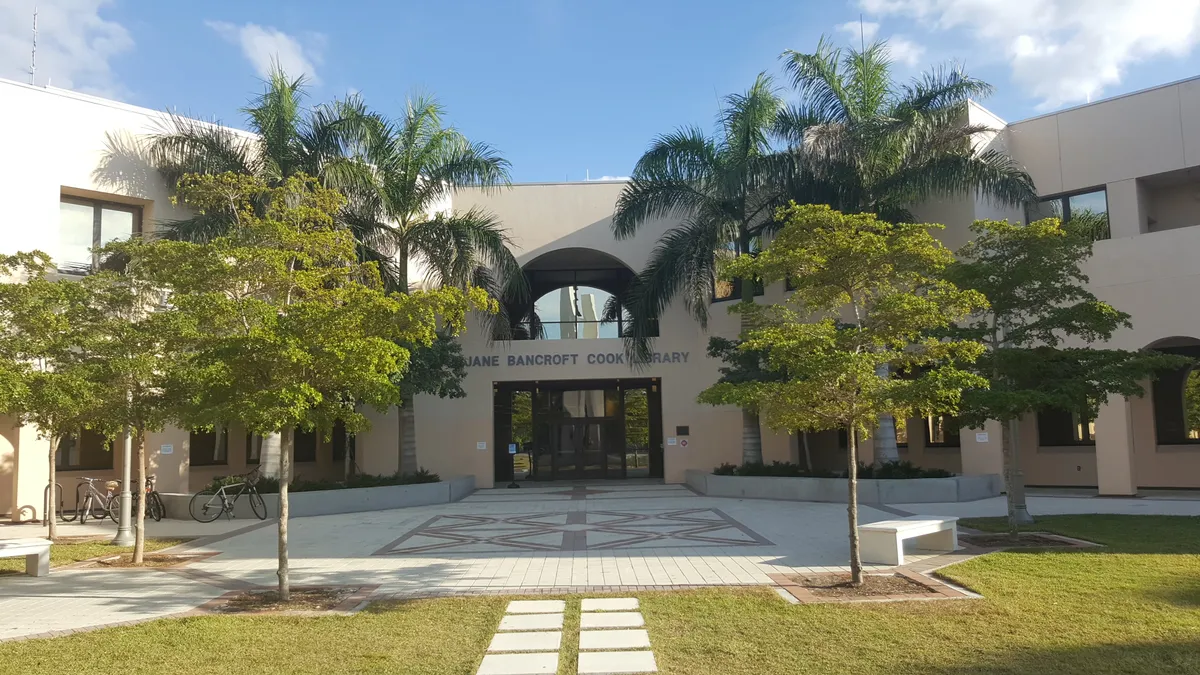The American Association of University Professors' governing council unanimously voted Saturday to sanction the New College of Florida and Spartanburg Community College over shared governance concerns.
Both New College and Spartanburg have been facing accusations of shared governance violations. In a release announcing the vote, AAUP took aim at the "politically motivated takeover" of New College and the dissolution last year of the faculty senate at Spartanburg.
A sanction indicates the AAUP has found a college to be significantly out of compliance with the academic government standards that it endorses. It is also meant to serve as a warning to the broader higher education community about these unsatisfactory conditions, according to AAUP.
The AAUP last sanctioned colleges in 2021, when it found six institutions to have violated or eliminated governance standards.
New College of Florida
The recent takeover of New College “stands as one of the most egregious and extensive violations of AAUP principles and standards at a single institution in recent memory,” the faculty group said in an announcement.
New College gained national attention when Republican Gov. Ron DeSantis made transforming the institution a priority in his fight to mold public education in his conservative vision.
Early last year, he removed six members of New College’s governing board and replaced them with right-wing allies. In turn, the group has set about dramatically changing the public liberal arts college, including by ousting its president, eliminating its diversity, equity and inclusion office, and increasing the number of student-athletes it enrolls.
AAUP alleged that New College's trustees and administration restructured its academic programming without meaningful faculty involvement. These changes include dismantling New College's gender studies program.
The council also alleged New College denied multiple faculty members academic due process when reviewing their applications for tenure and tenure renewal.
"All these actions violate long-standing AAUP-supported principles of shared governance," AAUP said Monday. The group found "ample evidence that these actions have seriously impaired, if not irreparably damaged, the collective and individual functions of the New College faculty."
DeSantis' influence on higher education has been felt broadly across the state's colleges, AAUP said in a December report. One professor cited in the report said that they have been witnessing "an intellectual reign of terror" in the state.
On Monday, New College pushed back and questioned AAUP's authority to sanction it or any higher education institution.
"The recent announcement from the AAUP is a headline grab, echoing the sensationalistic tone of their report issued over two months ago," a college spokesperson said. "Their persistent targeting of New College for any change they disagree with is clear evidence that New College is at the forefront of reforming higher education."
Spartanburg Community College
Last April, Spartanburg’s then-chief academic officer dissolved the community college's faculty senate shortly before it was set to vote on an unpopular in-person work policy. The administration then replaced the senate with a council that limited its members to weighing academic policy.
The new council’s election process had “near-total opacity," an AAUP investigating committee said in a December report. It found administrators held roughly 40% of the council's seats.
At the time, an attorney for the college said faculty were well represented in the new group. But interviews conducted by AAUP found that faculty members had little understanding of how the council’s members were chosen. Moreover, faculty council members said they were asked to approve bylaws without reading the language.
The South Carolina inspector general's office also found the chief academic officer knowingly issued false statements regarding the faculty senate to the press and sought to surveil the former senate president’s emails.
“This is not a story about a disgruntled faculty,” AAUP said in the December report. “It is a story about the chilling of faculty speech and about abuses of power.”
AAUP's South Carolina chapter has expressed that a sanction would significantly damage Spartanburg’s reputation.
Colton Grace, the spokesperson for Spartanburg Community College, said via email Tuesday that the institution doesn’t recognize AAUP.
“Academic governance at Spartanburg Community College has never been stronger since the faculty’s establishment of the Academic Council,” Grace said.
Editor’s note: This story has been updated to include a comment from Spartanburg Community College.













